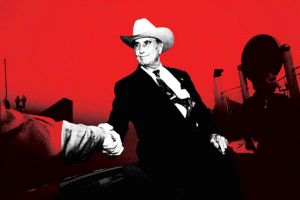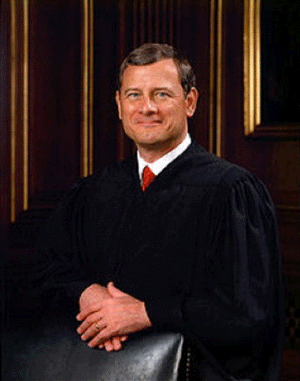The Right’s Dubious Claim to MadisonBy Robert Parry
June 23, 2013
NOTICE: THIS WORK MAY BE PROTECTED BY COPYRIGHTYOU ARE REQUIRED TO READ
THE COPYRIGHT NOTICE AT THIS LINK BEFORE YOU READ THE FOLLOWING WORK, THAT IS AVAILABLE SOLELY FOR PRIVATE STUDY, SCHOLARSHIP OR RESEARCH PURSUANT TO 17 U.S.C. SECTION 107 AND 108. IN THE EVENT THAT THE LIBRARY DETERMINES THAT UNLAWFUL COPYING OF THIS WORK HAS OCCURRED, THE LIBRARY HAS THE RIGHT TO BLOCK THE I.P. ADDRESS AT WHICH THE UNLAWFUL COPYING APPEARED TO HAVE OCCURRED. THANK YOU FOR RESPECTING THE RIGHTS OF COPYRIGHT OWNERS.
By asserting a connection to America’s First Principles, the Tea Party is forcing a reexamination of the early years of the Republic and a reconsideration of what the Framers of the U.S. Constitution intended.
That debate may be useful even if the Tea Party’s chief motivation in provoking it is simply a “rebranding” that recognizes that the image of white people waving the “Stars and Bars” and seeking “states’ rights” to disenfranchise black and brown people has a negative connotation for many modern Americans.
 James Madison, the chief architect of the U.S. Constitution and the fourth President of the United States.So, to present a more palatable image, today’s Right has dialed back the time machine from 1860 to 1776, trading in the Confederate flag for the Revolutionary War-era Gadsden flag with its coiled snake and “Don’t Tread on Me” motto, except with the federal government replacing the British monarchy as the source of “tyranny.”
James Madison, the chief architect of the U.S. Constitution and the fourth President of the United States.So, to present a more palatable image, today’s Right has dialed back the time machine from 1860 to 1776, trading in the Confederate flag for the Revolutionary War-era Gadsden flag with its coiled snake and “Don’t Tread on Me” motto, except with the federal government replacing the British monarchy as the source of “tyranny.”
Substantively, however, nothing has changed in this rebranding. There’s the same animosity that the Confederates felt toward President Abraham Lincoln and the Union when the South’s beloved institution of slavery was threatened. Only now the neo-Confederates are expressing their hatred for President Barack Obama and the federal government for advocating programs – like voting rights, immigration reform, food stamps and guaranteed health care – that are viewed by the predominantly white Tea Party as disproportionately aiding racial and ethnic minorities.
But instead of referencing the precedent of the Confederacy’s secession from the Union in defense of “states’ rights” and slavery, the Tea Party and today’s Right are asserting that they simply want to restore the original vision of America’s Founding, which they insist is not much different from the argument that the Confederates were making in 1860. To that end, the Right has invested heavily in “scholarship” that seeks to present the Framers as essentially pre-Confederates who believed strongly in “states’ rights” and wanted a weak central government. However, that “history,” in turn, requires slanting the evidence and kidnapping of one key Founder in particular.
Madison as Flip-FlopperAt the center of today’s ideological struggle over the Founding era is James Madison, a chief architect of the U.S. Constitution when he was essentially a protégé of George Washington in the 1780s. But Madison was also a practical politician who drifted – in the 1790s and later – into the orbit of his central Virginia neighbor, Thomas Jefferson, who led bitter fights against Washington’s Federalists and especially Alexander Hamilton.
This ambivalence of Madison – as central to Washington’s vision of a strong central government yet his later realignment with Jefferson’s fierce loyalty to Virginia and its interests – makes him a perfect candidate for the Right’s rewriting of the narrative surrounding the Constitution. The earlier Madison who sided with Washington on centralizing government power can be blurred with the later Madison who supported Jefferson in defending Virginia’s regional interests, particularly its investment in slavery.In this regard, Andrew Burstein and Nancy Isenberg’s Madison and Jefferson offers some valuable insights into the history of the era and the political collaboration between these two important Founders. Unlike many histories that glorify Jefferson in particular, this book, published in 2010, provides a fairly objective assessment of the strengths and weaknesses of the two leaders.
Perhaps the authors’ most significant observation is that Jefferson and Madison must be understood as, first and foremost, politicians representing the interests of their constituencies in Virginia where the two men lived nearby each other on plantations worked by African-American slaves, Jefferson at Monticello and Madison at Montpelier.
“It is hard for most to think of Madison and Jefferson and admit that they were Virginians first, Americans second,” Burstein and Isenberg note. “But this fact seems beyond dispute. Virginians felt they had to act to protect the interests of the Old Dominion, or else, before long, they would become marginalized by a northern-dominated economy.
“Virginians who thought in terms of the profit to be reaped in land were often reluctant to invest in manufacturing enterprises. The real tragedy is that they chose to speculate in slaves rather than in textile factories and iron works. … And so as Virginians tied their fortunes to the land, they failed to extricate themselves from a way of life that was limited in outlook and produced only resistance to economic development.”
Not only was Virginia’s agriculture tied to the institution of slavery but after the Constitution banned the importation of slaves in 1808, Virginia developed a new industry, the breeding of slaves for sale to new states forming in the west.
The Virginia DynastyIn that way, the so-called Virginia Dynasty over the presidency that ran consecutively from Jefferson in 1801 through Madison starting in 1809 and James Monroe ending in 1825 – defended the interests of the South’s slaveholders in part by constraining the role of the federal government in building the young nation’s industrial strength and its financial development.It had been a fear among Southern politicians from the earliest days of American independence that a strong federal government would eventually eradicate slavery. So, it was a Southern imperative – carried forward by the Virginia Dynasty – to limit that power even though Madison had been instrumental in centralizing it.
While the Right likes to look at Madison as a constitutional purist who always favored tightly constrained federal powers, a more useful prism for seeing the historical Madison is that he shifted from the patronage of Washington, who despised the idea of state “sovereignty” after experiencing its inefficiency while commander-in-chief of the Continental Army, to the tutelage of the brilliant but mercurial Jefferson, who was wedded to the interests of Virginia.Whereas Washington – working with his protégés Madison and Hamilton – had a national vision of a fast-developing country with states subordinate to the federal government, Jefferson could not move beyond his more parochial concept of Virginia and Southern states maintaining substantial freedom from a federal government that might seek to abolish slavery.
Under Washington’s wing in the years immediately after independence – while Jefferson was serving as the U.S. representative to France – Madison recognized the disaster of the Articles of Confederation, which set the rules for U.S. governance from 1777 to 1787. The Articles made the 13 states “sovereign” and “independent” and deemed the federal government simply a “league of friendship.” For instance, Madison shared Washington’s interest in placing the development of national commerce under the control of the federal government, but Madison’s initial Commerce Clause failed to win the support of the Virginia legislature.
The United States was also flailing in regards to maintaining domestic security with the Shays’ Rebellion rocking western Massachusetts in 1786-87 and the federal government too weak to help restore order.
Washington feared that Great Britain would exploit the regional and social divisions of the new country and thus threaten its hard-won independence.
“Thirteen sovereignties,” Washington wrote, “pulling against each other, and all tugging at the federal head, will soon bring ruin to the whole.” [See Catherine Drinker Bowen’s Miracle at Philadelphia.]Madison’s FederalismMadison was of a similar mind. In 1781, as a member of the Congress under the Articles of Confederation, he introduced a radical amendment that “would have required states that ignored their federal responsibilities or refused to be bound by decisions of Congress to be compelled to do so by use of the army or navy or by the seizure of exported goods,” noted Chris DeRose in Founding Rivals. However, Madison’s plan – opposed by the powerful states – went nowhere.
Similarly, Madison lamented how the variety of currencies issued by the 13 states and the lack of uniform standards on weights and measures impeded trade. Again, he looked futilely toward finding federal solutions to these state problems.
So, after a decade of growing frustration and mounting crises under the Articles, a convention was called in Philadelphia in 1787 to modify them. Washington and Madison, however, had a bigger idea. They pressed instead to scrap the Articles altogether in favor of a new constitutional structure that would invest broad powers in the central government and remove language on state sovereignty and independence.
Madison told Washington that the states had to be made “subordinately useful,” a sentiment that Washington shared after seeing how states had failed to meet their financial obligations to his troops during the Revolution.
As Washington presided over the convention, it fell to Madison to supply the framework for the new system. Madison’s plan called for a strong central government with clear dominance over the states. Madison’s original plan even contained a provision to give Congress veto power over state decisions.
The broader point of the Constitutional Convention was that the United States must act as one nation, not a squabbling collection of states and regions. James Wilson from Pennsylvania reminded the delegates that “we must remember the language with which we began the Revolution: ‘Virginia is no more, Massachusetts is no more, Pennsylvania is no more. We are now one nation of brethren, we must bury all local interests and distinctions.’”
However, as the contentious convention wore on over the summer, Madison retreated from some of his more extreme positions. “Madison wanted the federal assembly to have a veto over the state assemblies,” wrote David Wootton, author of
The Essential Federalist and Anti-Federalist Papers. “Vetoes, however, are bad politics, and again and again they had to be abandoned in the course of turning drafts into agreed texts.”
But Madison still pushed through a governing structure that bestowed important powers on the central government – including the ability to tax, to print money, to control foreign policy, to conduct wars and to regulate interstate commerce.
Madison also came up with a plan for approving the Constitution that bypassed the state assemblies and instead called for special state conventions for ratification. He knew that if the Constitution went before the existing assemblies – with the obvious diminution of their powers – it wouldn’t stand a chance to win the approval of the necessary nine states.
Resistance to the ConstitutionStill, the Constitution prompted fierce opposition from many prominent Americans who recognized how severely it reduced the powers of the states in favor of the central government. These Anti-Federalists decried the broad and sometimes vague language that shifted the country away from a confederation of independent states to a system that made the central government supreme.
What Madison and his cohorts had achieved in Philadelphia was not lost on these Anti-Federalists, including Pennsylvania delegates who had been on the losing side and who then explained their opposition in a lengthy report which declared: “We dissent … because the powers vested in Congress by this constitution, must necessarily annihilate and absorb the legislative, executive, and judicial powers of the several states, and produce from their ruins one consolidated government. …
“The new government will not be a confederacy of states, as it ought, but one consolidated government, founded upon the destruction of the several governments of the states. … The powers of Congress under the new constitution, are complete and unlimited over the purse and the sword, and are perfectly independent of, and supreme over, the state governments; whose intervention in these great points is entirely destroyed.”
The Pennsylvania dissenters noted that the state sovereignty language from the Articles of Confederation was stripped out of the Constitution and that national sovereignty was implicitly transferred to “We the People of the United States” in the Preamble. They pointed out that the Constitution’s Article Six made federal statutes and treaties “the supreme law of the land.”
“The legislative power vested in Congress … is so unlimited in its nature; may be so comprehensive and boundless [in] its exercise, that this alone would be amply sufficient to annihilate the state governments, and swallow them up in the grand vortex of general empire,” the Pennsylvania dissenters declared.
Some Anti-Federalists charged that the President of the United States would have the powers of a monarch and that the states would be reduced to little more than vassals of the central authority. Others mocked the trust that Madison placed in his schemes of “checks and balances,” that is, having the different branches of government block others from committing any grave abridgement of liberties.
Famed Revolutionary War orator Patrick Henry, one of the leading Anti-Federalists, denounced Madison’s scheme of countervailing powers as “specious imaginary balances, your rope-dancing, chain-rattling, ridiculous ideal checks and contrivances.” Henry and other opponents favored scrapping the new Constitution and calling a second convention.Toward RatificationThough the Anti-Federalists were surely hyperbolic in some of their rhetoric, they were substantially correct in identifying the Constitution as a bold assertion of federal power and a major transformation from the previous system of state independence.
For his part, Madison was not only the chief architect of this shift from state to national power, he even favored a clearer preference for federal dominance with his veto idea over actions by state assemblies, the proposal that died in the compromising at Philadelphia. However, Madison and other Federalists faced a more immediate political challenge in late 1787 and early 1788 – securing ratification of the new Constitution in the face of potent opposition from the Anti-Federalists.
Despite Madison’s ploy of requiring special ratifying conventions in the various states, the Anti-Federalists appeared to hold the upper hand in key states, such as Virginia and New York. So, to defend the new Constitution, Madison joined with Alexander Hamilton and John Jay in anonymously composing the Federalist Papers, a series of essays which not only sought to explain what the Constitution would do but – perhaps more importantly – to rebut the accusations of the Anti-Federalists.
Indeed, the Federalist Papers are best understood not as the defining explanation of the Framers’ intent – since the actual words of the Constitution (contrasted with the Articles of Confederation) and the debates in Philadelphia speak best to that – but as an attempt to tamp down the political fury directed at the proposed new system.Thus, when the Anti-Federalists thundered about the broad new powers granted the central government, Madison and his co-authors countered by playing down how radical the new system was and insisting that the changes were more tinkering with the old system than the total overhaul that they appeared to be.
That is the context which today’s Right misses when it cites Madison’s comments in Federalist Paper No. 45, entitled “The Alleged Danger From the Powers of the Union to the State Governments Considered,” in which Madison, using the pseudonym Publius, sought to minimize what the Constitution would do. He wrote:
“If the new Constitution be examined with accuracy, it will be found that the change which it proposes consists much less in the addition of NEW POWERS to the Union, than in the invigoration of its ORIGINAL POWERS.
“The regulation of commerce, it is true, is a new power; but that seems to be an addition which few oppose, and from which no apprehensions are entertained. The powers relating to war and peace, armies and fleets, treaties and finance, with the other more considerable powers, are all vested in the existing Congress by the Articles of Confederation. The proposed change does not enlarge these powers; it only substitutes a more effectual mode of administering them.”
Today’s Right trumpets this essay and especially Madison’s summation – that “the powers delegated by the proposed Constitution to the federal government are few and defined. Those which are to remain in the State governments are numerous and indefinite” – but the Right ignores what Madison was trying to accomplish with his essay. He was trying to defuse the opposition. After all, if Madison really thought the Articles only needed some modest reform, why would he have insisted on throwing them out altogether along with their language about state “sovereignty” and “independence”?come back to bite you: If a problem will come back to bite you, it will cause more trouble for you in the future if you do not solve it now.
-- Come Back To Bite You, by Cambridge Dictionaries Online
Power with TeethNor was it entirely accurate for Madison to suggest that replacing the federal government’s toothless powers in the Articles with powers having real teeth in the Constitution was trivial. Under the Constitution, for instance, the printing of money became the exclusive purview of the federal government, not a minor change. Madison also was a touch disingenuous when he downplayed the importance of the Commerce Clause, which gave the central government control over interstate commerce. Madison understood how important that federal authority was.
To cite Madison as an opponent of an activist federal government, the Right must also ignore Federalist Paper No. 14 in which Madison envisioned major construction projects under the powers granted by the Commerce Clause. “[T]he union will be daily facilitated by new improvements,” Madison wrote. “Roads will everywhere be shortened, and kept in better order; accommodations for travelers will be multiplied and meliorated; an interior navigation on our eastern side will be opened throughout, or nearly throughout the whole extent of the Thirteen States.
“The communication between the western and Atlantic districts, and between different parts of each, will be rendered more and more easy by those numerous canals with which the beneficence of nature has intersected our country, and which art finds it so little difficult to connect and complete.”
What Madison is demonstrating in that essay is a core reality about what he, Washington and Hamilton were seeking. They were pragmatists seeking to build a strong and unified nation.Yet, despite the prestige of George Washington and the propaganda of the Federalist Papers, Madison encountered intense opposition to ratification at the Virginia convention where
fears of a federal abolition of slavery were raised, ironically, by two of the most famous voices for “liberty,” Patrick Henry and George Mason.Henry and Mason have gone down in popular U.S. history as great espousers of freedom. Before the Revolution, Henry was quoted as declaring, “Give me liberty or give me death!” Mason is hailed as a leading force behind the Bill of Rights. But their notion of “liberty” and “rights” was always selective. Henry and Mason worried about protecting the “freedom” of plantation owners to possess other human beings as property.[Dexter] You'll find it under Harvard Classics. Give Darwin a little nudge there.
[Mike] I thought I'd pour a little champagne.
[Dexter] It's a great leveler.
[Mike] It makes you my equal.
[Dexter] I wouldn't say that.
[Mike] Well, it almost makes you my equal....

[Dexter] I drink to your health.
[Mike] Nah, let's drink to your wealth.
[Dexter] You're my bon'amie.
[Mike] Hey, that's French ...
[Dexter] A liberty ...
[Both] fraternity ...
-- Liberty Fraternity: Vignette from High Society, directed by Charles Walters
The Virginia ConventionAt Virginia’s Ratification Convention in June 1788, Henry and Mason raised several arguments against the proposed Constitution, but their hot-button appeal centered on the danger they foresaw regarding the abolition of slavery.
As historians Burstein and Isenberg wrote in
Madison and Jefferson, Henry and Mason warned the plantation owners at the convention that “slavery, the source of Virginia’s tremendous wealth, lay politically unprotected.” At the center of this fear was the state’s loss of ultimate control over its militia which could be “federalized” by the President as the nation’s commander-in-chief under the proposed Constitution.
“Mason repeated what he had said during the Constitutional Convention: that the new government failed to provide for ‘domestic safety’ if there was no explicit protection for Virginians’ slave property,” Burstein and Isenberg wrote. “Henry called up the by-now-ingrained fear of slave insurrections – the direct result, he believed, of Virginia’s loss of authority over its own militia.”
Henry floated conspiracy theories about possible subterfuges that the federal government might employ to deny Virginians and other Southerners the “liberty” to own African-Americans. Describing this fear-mongering, Burstein and Isenberg wrote:
“Congress, if it wished, could draft every slave into the military and liberate them at the end of their service. If troop quotas were determined by population, and Virginia had over 200,000 slaves, Congress might say: ‘Every black man must fight.’ For that matter, a northern-controlled Congress might tax slavery out of existence. Mason and Henry both ignored the fact that the Constitution protected slavery on the strength of the three-fifths clause, the fugitive slave clause, and the slave trade clause. Their rationale was that none of this mattered if the North should have its way.”
At Philadelphia in 1787, the drafters of the Constitution had already capitulated to the South’s insistence on its brutal institution of human enslavement. That surrender became the line of defense that Madison cited as he sought to finesse the arguments of Mason and Henry.Burstein and Isenberg wrote, “Madison rose to reject their conspiratorial view. He argued that the central government had no power to order emancipation, and that Congress would never ‘alienate the affections five-thirteenths of the Union’ by stripping southerners of their property. ‘Such an idea never entered into any American breast,’ he said indignantly, ‘nor do I believe it ever will.’
“Madison was doing his best to make Henry and Mason sound like fear-mongers. Yet Mason struck a chord in his insistence that northerners could never understand slavery; and Henry roused the crowd with his refusal to trust ‘any man on earth’ with his rights. Virginians were hearing that their sovereignty was in jeopardy.”
Despite the success of Mason and Henry to play on the fears of plantation owners, the broader arguments stressing the advantages of Union carried the day, albeit narrowly. Virginia ultimately approved ratification by 89 to 79.
Return of JeffersonWith the return of Jefferson from France in 1789, the political physics of the young Republic began to change. Though Jefferson, the principal author of the Declaration of Independence, had offered little input into the development of the Constitution, he immediately grew concerned over how the Federalists around Washington and Hamilton sought to implement it, with ambitious projects for national development.
Jefferson, who served as Washington’s Secretary of State, and Hamilton, who was Treasury Secretary, represented the two poles of how the nation should proceed – and their clashes were personal as well as ideological. The two men gave impetus to the emergence of “factions,” what Washington had feared as a great threat to the Republic.
Soon the lines were drawn between Jefferson’s Democratic-Republicans and Hamilton’s (and Washington’s) Federalists. In the middle was Madison who shocked Hamilton and Washington by essentially abandoning their side of the argument and aligning himself with Jefferson. In the Federalist view, the gravitational pull of Virginian politics had yanked Madison out of Washington’s orbit and moved him into Jefferson’s.
Madison, who had previously recognized the logical disconnect between the liberties of a Republic and the existence of slavery, soon fell silent on the issue. As Burstein and Isenberg note, 1791 was the last time Madison criticized slavery publicly: “That was when Madison prepared notes for a National Gazette essay, never published, in which he asserted that slavery and republicanism were incompatible.”In effect, Jefferson began acting on the logic of the Henry-Mason argument, that a strong central government would eventually doom slavery. Thus, Jefferson opposed the Federalist project to deploy the empowered central government under the Constitution to build the nation, ideas like Hamilton’s national bank and even Madison’s road construction.
Jefferson proved to be an adept, even ruthless, politician as he secretly financed newspaper attacks on his Federalist rivals, such as John Adams, who succeeded Washington as the second president in 1797. Jefferson pushed Adams aside in 1801 to become the third president.In doing so, Jefferson presented his ideology as an insistence that the Constitution be strictly interpreted to keep federal authority within its “enumerated powers.” Politically, he portrayed his movement as one defending simple “farmers,” but his true base of political support was the Southern slaveholding aristocracy.
Jefferson’s RacismJefferson’s racism, which included pseudo-science of skull measurements to prove the inferiority of African-Americans in his
Notes on the State of Virginia, colored his administration’s foreign policy, too.
He sided with French Emperor Napoleon’s scheme to crush the slave uprising in Haiti, a movement for black freedom that Jefferson feared would spread northward.
Ironically, the defeat of
Napoleon’s army in Haiti forced the Emperor to forego the second phase of his plan, to expand his empire into the center of the North American continent. Instead, he offered to sell it to Jefferson in a deal negotiated by Secretary of State Madison.
In buying the Louisiana territories, Jefferson and Madison ignored the principle of the Constitution’s “enumerated powers” which didn’t say anything about buying land that doubled the size of the country.Similarly, as the fourth president, Madison’s stumbling performance in the War of 1812 changed his mind about the value of a national bank as a necessity for financing an effective military force.
Yet, while showing flexibility on their governing principles while in office, Jefferson and Madison hardened in defense of Virginia’s industry of slavery. Though both recognized the principled case against slavery, their political and financial interests overcame any moral qualms that they may have had.
After their presidencies, Jefferson and Madison remained loyal to their neighbors, the slaveholders of Virginia who – as a group – had discovered a lucrative new industry, breeding slaves for sale to the new states emerging in the west. Jefferson himself saw the financial benefit of having fertile female slaves.
“I consider a woman who brings a child every two years as more profitable than the best man of the farm,” Jefferson remarked. “What she produces is an addition to the capital, while his labors disappear in mere consumption.”While recognizing the economic value of slavery, Jefferson suggested that the ultimate resolution of slavery would be to expatriate black Americans out of the country. One of Jefferson’s ideas was to take away the children born to black slaves in the U.S. and ship them to Haiti. In that way, Jefferson posited that both slavery and America’s black population could be phased out.Slaveholders as VictimsJefferson and Madison also insisted on framing the slavery issue as one in which the white Southerners who owned slaves were the real victims. In 1820, Jefferson wrote a letter expressing his alarm over the bitter battle surrounding the admission of Missouri as a slave state. “As it is, we have the wolf by the ear and we can neither hold him, nor safely let him go,” Jefferson wrote. The imagery sought sympathy for the Southern slaveholders as the ones caught in a dangerous predicament, tenuously holding onto a ravenous wolf.
After returning to his Virginia plantation, Madison expressed his own sympathy for the slave-owning South in a play that he wrote, entitled “Jonathan Bull and Mary Bull.” The plot involved the wife Mary having one black arm, which husband Jonathan had accepted at the time of their marriage but later found offensive. He demanded that Mary either have her skin peeled off or her arm cut off.In Madison’s script, Jonathan Bull becomes obnoxious and insistent even though his remedy is cruel and even life-threatening. “I can no longer consort with one marked with such a deformity as the blot on your person,” Jonathan tells Mary, who is “so stunned by the language she heard that it was some time before she could speak at all.”
Madison’s play clumsily made the belligerent and cruel Jonathan represent the North and the sympathetic and threatened Mary the South. As historians Burstein and Isenberg note, “Madison’s refusal to acknowledge the North’s right to speak out against southern slavery is matched by his feminization of the South, vulnerable if not wholly innocent and routinely subjected to unwarranted pressure.”In other words, Madison considered the South’s white slaveholders the real victims here, and the North’s abolitionists were unfeeling monsters.Late in his life, Jefferson was confronted on the moral and intellectual contradiction between his soaring “all men are created equal” rhetoric and his prosaic defense of slavery. The French patriot, the Marquis de Lafayette, who had fought at Washington’s side against the British and who became an advocate for emancipation in 1788, challenged his old friend Jefferson during a tour of the country that Lafayette had helped forge.
In 1820, Lafayette “pressed Jefferson to become again the activist [for liberty] he had been when they first met.” Lafayette told Jefferson that “I find, in the Negro Slavery, a great draw back upon my enjoyments” from the success of American independence, as Burstein and Isenberg note.
But Lafayette’s pain over the continuation – and even expansion – of slavery in the United States did not move Jefferson to reconsider his position. Unlike Washington and some other Founders whose wills freed their slaves, Jefferson (who died in 1826) and Madison (who died in 1836) did not grant any blanket freedom. Madison freed none of his slaves; Jefferson only freed a few related to the Hemings family of which his purported mistress, Sally Hemings, was a member.
Heading to WarJefferson and Madison (at least the later incarnation of Madison as Jefferson’s ally) also helped put the nation on the path to the Civil War by lending support to the “nullification” movement in which Southern states insisted that they could reject (or nullify) federal law, the opposite position from the one Madison took in the Constitutional Convention when he favored giving Congress the power to veto state laws.
In the early 1830s, Southern politicians sought “nullification” of a federal tariff on manufactured goods, but were stopped by President Andrew Jackson who threatened to deploy troops to South Carolina to enforce the Constitution.
In December 1832, Jackson denounced the “nullifiers” and declared “the power to annul a law of the United States, assumed by one State, incompatible with the existence of the Union, contradicted expressly by the letter of the Constitution, unauthorized by its spirit, inconsistent with every principle on which it was founded, and destructive of the great object for which it was formed.”Jackson also rejected as “treason” the notion that states could secede if they wished, noting that the Constitution “forms a government not a league,” a reference to a line in the Articles of Confederation that had termed the fledgling United States a “league of friendship” among the states, not a national government.Jackson’s nullification crisis was resolved nonviolently, but the South continued to resist any application of federal authority, even when the government sought to provide disaster relief, out of fear that such efforts could become a legal precedent for abolishing slavery.
Finally, in 1860, with the election of Abraham Lincoln from the new anti-slavery Republican Party, Southern states seceded from the Union and formed the Confederacy which explicitly authorized the institution of slavery in perpetuity. It took the Union’s victory in the Civil War to free the slaves and to make African-Americans full citizens of the United States. However, the defeated South still balked at equal rights for blacks and invoked “states’ rights” to defend segregation during the Jim Crow era.White Southerners amassed enough political clout, especially within the Democratic Party – the successor to Jefferson’s Democratic-Republican Party – to fend off civil rights for blacks. The battle over states’ rights was joined again in the 1950s when the federal government finally committed itself to enforcing the principle of “equal protection under the law” as prescribed by the Fourteenth Amendment.
Many white Southerners were furious that their system of segregation was being dismantled by federal authority.
Southern rightists and many libertarians insisted that federal laws prohibiting denial of voting rights for blacks and outlawing segregation in public places were unconstitutional. But federal courts ruled that Congress was within its rights in banning such discrimination within the states.The Modern RightThe anger of Southern whites was taken out primarily on the Democratic Party, which had led the fight for civil rights. Opportunistic Republicans, such as Richard Nixon, fashioned a “Southern strategy” that deployed racial code words to appeal to Southern whites. Soon, the region flipped from solidly Democratic to predominantly Republican as it is today.
It remains highly significant that Bush began his public political career in the ideological guise of a southern Republican, specifically in Texas. ... In order to create a Republican Party in the south, it was first necessary to smash the old FDR New Deal constituent of labor, the cities, farmers, blacks, and the Solid South. ... The method that the southern Republicans devised to breach this solid front was the one theorized years later by Lee Atwater, the manager of Bush's 1988 Presidential campaign. This was the technique of the 'wedge issues,' so called precisely because they were chosen to split up the old New Deal coalition using the chisels of ideology. The wedge issues are also known as the 'hot-button social issues,' and the most explosive among them has always tended to be race. ... Racial invective, anti-union demagogy, jingoistic chauvinism, the smearing of opponents for their alleged fealty to 'special interests' ... these ideas were further refined in Richard Nixon's brain trust, presided over by Wall Street bond lawyer John Mitchell ... and received their definitive elaboration from Kevin Phillips who advanced the thesis that the 'whole secret of politics is in knowing who hates who,' which is of course another way of speaking of wedge issues. The result of the successful application of the Southern Strategy in 1968 and in the following years has been a period of more than two decades of one-party Republican control over the Executive Branch ... which has proven a mighty stimulus to those tendencies towards authoritarian and even totalitarian rule which have culminated in the Administrative Fascism of the current Bush regime.
-- George Bush: The Unauthorized Biography, by Webster G. Tarpley & Anton Chaitkin
Southern white anger was also reflected in the prevalence of the Confederate battle flag on pickup trucks and in store windows. But direct appeals to racism became politically unpalatable in modern America, so today’s Right began its rebranding. From a movement that resented federal intervention on behalf of blacks and other minorities, the Right became a movement that decried federal intervention as a violation of fundamental American “liberties.”Imagine that Stan, a congregant of no particular church, thinks the Jews killed Christ, and would prefer not to sell nails to Jews at his local hardware store, because he wants to adhere to his belief that Christ-killing is wrong and that the Jews to this day are morally responsible for it.
Or imagine that Wayne, who owns a local Denny's franchise, believes based on his self-directed study of the Bible and 19th-century interpretations thereof and the encouragement of his peers that African-Americans are the heirs of the imagined Curse of Ham, and shouldn't be seated in his restaurant with the heirs of Shem and Japheth, and should be seated instead in a separate and inferior section of the restaurant, if he must seat them at all.
Or imagine that the Gulnare Free Will Baptist Church runs a shaved-ice stand at the local county fair, and would prefer not to sell shaved ice to multi-racial couples or families visiting the fair, because its membership disagrees with race-mixing.
Federal anti-discrimination laws prevent Stan and Wayne and the GFWBC from implementing their beliefs when they sell goods and services to the public at large. So do many state and local statutes.
This generates relatively little outrage. Politicians do not campaign against anti-discrimination laws on the premise that the dilemma of Stan and Wayne and the GFWBC presages increasing loss of freedoms. People like Stan and Wayne and the GFWBC sue quite infrequently in an attempt to win a right to discriminate in providing public services, and don't get much support when they do. In "mainstream" publications, few angry columns are written about their plight. A few people will assert that anti-discrimination laws like those that restrain Stan and Wayne and the GFWBC are unconstitutional and unworkable, but will not articulate that belief with much heat or light.
Compare that to the response to the assertions of Jack Phillips of Masterpiece Cakeshop in Lakewood, Colorado.
Jack Phillips and Masterpiece Cakeshop refused to make a cake for David Mullins and Charlie Craig, who sought a Colorado celebration of their Massachusetts marriage. The Colorado Attorney General has filed a complaint against Philips and Masterpiece Cakeshop before the Colorado Civil Rights Commission. That decision has spurred outrage and warnings of the loss of personal freedom of conscience. Philips' lawyer has skillfully manipulated the outrage, pronouncing that Phillips faces a year in jail for following his conscience — by which he means that a court could order Phillips not to discriminate, and in Colorado defiance of such an order could potentially lead to a prosecution that could potentially yield a prison sentence.
My question is this: is there a principled reason that some people are outraged when anti-discrimination laws are applied to forbid discrimination against gays, but not to discrimination against Jews, or African-Americans, or any other group?
Is there a principled reason that people will assert that a baker should have a right to refuse service to a same-sex couple, but not take the next step and say that the baker should be able to refuse service to anyone — including based on race or religion — according to his or her conscience?
Is the answer merely that anti-gay religious sentiment is relatively mainstream, but racist or racial separatist religious sentiment is steadily more and more marginalized and unusual in American society? In other words, is the defense of Jack Philips a plea for preferred treatment of a favored religious belief? Or would Jack Phillips' defenders be equally willing to defend Stan, and Wayne, and the GFWBC? Is the relatively narrow defense of the Jack Phillips of America a matter of a principle subject to articulation, or is it a matter of political calculation — a belief that Americans might agree with a right for a merchant to discriminate against gays, but not a right to discriminate against Jews or African-Americans? Is there an ideal at hand more principled than "society should allow the types of discrimination in which I, personally, might want to indulge"?
Statutory and Constitutional rights frequently conflict. There is an inherent tension between anti-discrimination laws, on the one hand, and the rights of free association and free exercise of religion, on the other hand. Recognizing that tension is simply being honest about the structure of rights acknowledged by our society; it doesn't dictate one outcome or the other. Even vigorous libertarians reach different conclusions on the subject.
But if someone makes a rights-based objection to application of an anti-discrimination law — whether based on free exercise of religion, or freedom of association — I think it's reasonable to ask whether the objection is consistent, or a case of special pleading. An honest dialogue about the proposed right to discriminate against same-sex couples would examine that right's necessary implications.
-- A Few Questions About the Socially Acceptable Range of Discrimination, by Ken White
Still, the rebranding was only cosmetic. Today’s Tea Party wants much the same thing – and is motivated by many of the same fears – as the generations of pre-Confederates, Confederates, post-Confederates and neo-Confederates. They all want to maintain white supremacy, and they resent the federal government’s insistence that blacks (and brown) people be treated as full citizens.
Thus, you see the Tea Party’s aggressive support for state laws restricting voting rights (especially for minorities) and the Tea Party’s furious opposition to immigration reform that would give millions of Hispanics a pathway to citizenship. Plus, it was the election of the first African-American president that created the impetus for the Tea Party’s emergence in the first place, amid calls from whites to “take our country back” and slurs about Barack Obama being born in Kenya.
But the overriding historical question – raised by the Tea Party’s insistence that it represents the founding ideals of the United States – is whether the nation embraces the intent of Washington (and the earlier incarnation of Madison) for a strong central government seeking the public good or the resistance to the Constitution that was pushed by slave-owning Virginians, such as Jefferson (and the later incarnation of Madison).
The former interpretation sought to deploy the federal government on behalf of fulfilling the goals of the Constitution’s Preamble, including the need to “promote the general welfare.” The latter interpretation saw an activist federal government as a death knell to slavery.
Today’s Tea Party may wish to pretend that its overwhelmingly white membership dressing up in Revolutionary War costumes separates it from the image of angry white segregationists wearing white sheets, waving the Stars and Bars and spitting on black children on their way to school. But the Tea Party’s opinion of the Constitution and the interpretation that embraced slavery, secession and segregation are one and the same.Investigative reporter Robert Parry broke many of the Iran-Contra stories for The Associated Press and Newsweek in the 1980s. You can buy his new book, America’s Stolen Narrative, either in print here or as an e-book (from Amazon and barnesandnoble.com). For a limited time, you also can order Robert Parry’s trilogy on the Bush Family and its connections to various right-wing operatives for only $34. The trilogy includes America’s Stolen Narrative. For details on this offer, click here.









